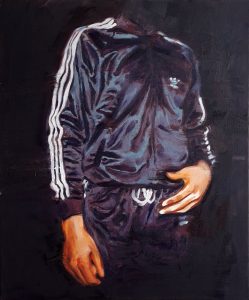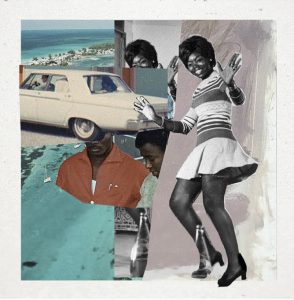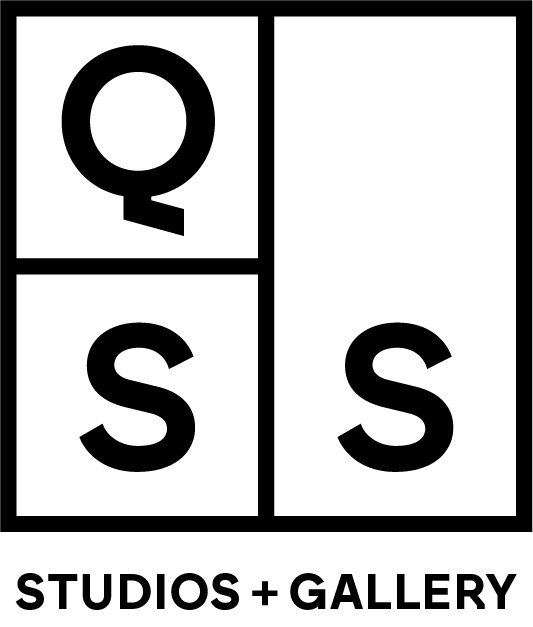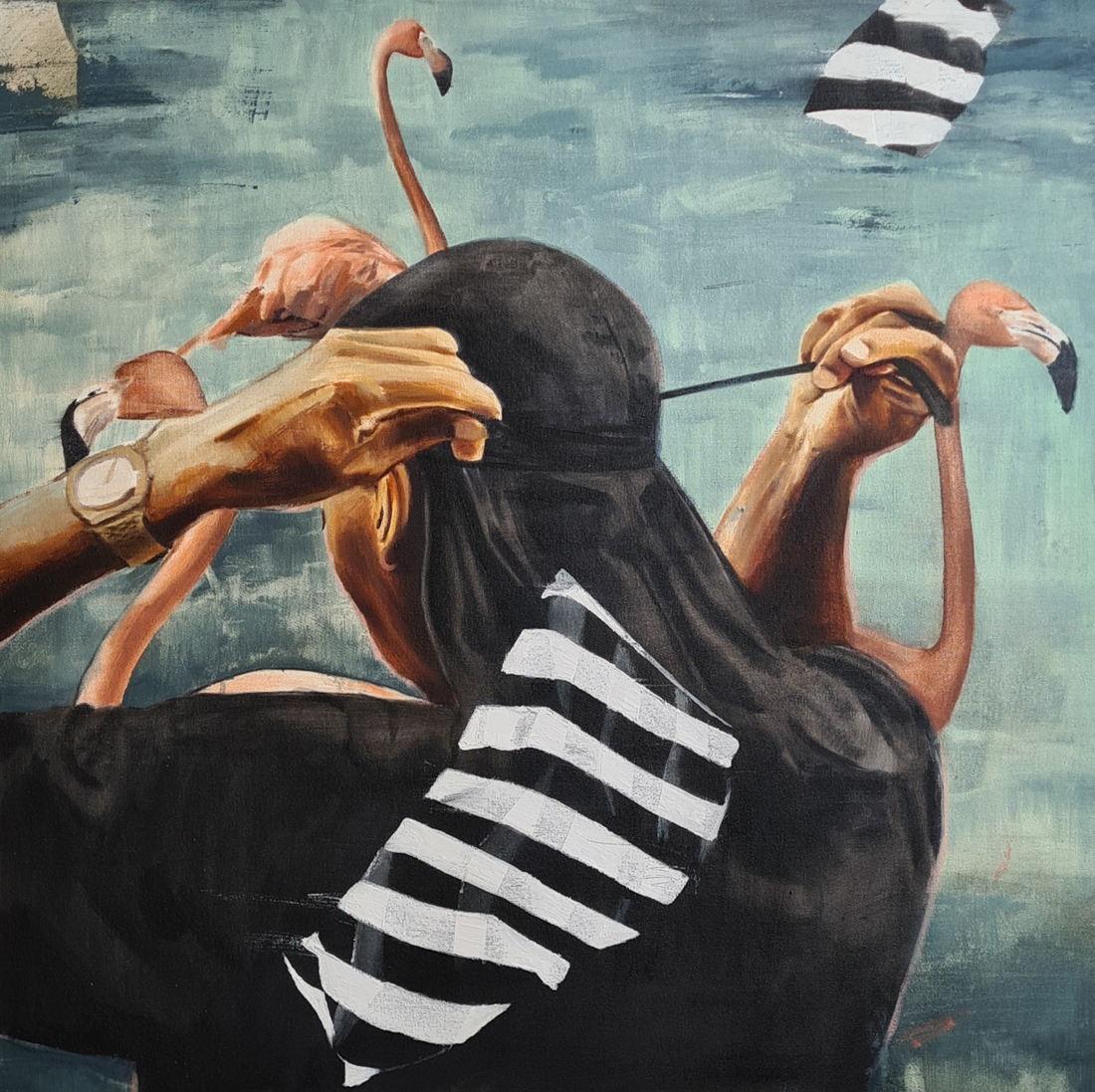1. What is your typical studio routine?
My typical studio routine would be to arrive with fresh eyes and set a target to complete by the end of my session. I’d pick a playlist or podcast to listen to then crack on with my work, starting by cleaning the palette and putting out paint for colour mixing. I’d prepare my work surface and have an image already drawn up before I would put my brush to canvas. All going well – it’s great to smash a painting out in one day! But working with oil paints most paintings require revisiting over multiple sessions which involves a bit of planning – thinking about layer application and drying times. By the time I’m done for the day it is important for me to have a clear resolution (and clean brushes) so I can look forward to my next bout.
2. How do you describe your practice?
There’s two sides to my practice. One is the work I create for others. The commissions for clients that I complete are usually portraits but can range from murals, landscapes and other illustrations.
The other side is my own original work. I’d say it’s multidisciplinary as I work with different mediums such as digital art, collage and photography. Generally, the finished piece is an oil painting. I take quite a different approach to all the finished works and try my hand with materials that interest me at the time.
3. Is there a particular process or methodology within your practice that is important to you?
I’d say there’s one important methodology which is digital image manipulation that I complete using Photoshop. This helps compositionally and creatively it has no limits in terms of colour, layers, filters and texture. This is certainly a foundational tool used in nearly every artwork of mine and I enjoy working with it.
4. How long have you been working as an artist?
I’ve been working as an artist since I graduated from Ulster University in 2016. Ever since I’ve maintained a studio.
5. Is it difficult being back in the studio after an exhibition?
It is difficult being back in the studio after an exhibition for sure. A lot of my focus and energy was applied to creating the artworks for that solo exhibition. I took a break for a few weeks which has definitely been a bad approach – I should have just kept going with the momentum I had because I was churning out a new painting every week! But it was also a busy time of the year on the run up to Christmas and I had a few commission to work on to keep me busy, so a break was needed. To start the year a fresh I have a few new ideas and projects to work on so I’m looking forward to get back in, working and having some fun.
6. Describe how important art is to society?
Art is of the essence to society. It is our way of viewing the world and our way of adding meaning to humanity. It is communicable across all cultures and is a language of it’s own. Art brings people together and can promote expression.
7. What do you dislike about the artworld?
Andy Warhol – Making money is the highest form of art
8. What is the best advice you have been given as an artist?
A couple of simple quotes from a book I read recently:
Don’t think. Act.
Forgot rational thought. Play like a child.
– Steven Pressfield
I’m still working on channelling this!
9. What jobs have you done, other than being an artist?
I’ve worked in hospitality, retail, telesales and the only interesting and truly enjoyable job was being an outdoor activity / archery instructor! Loved it.
About the Artist
Ciaran Harper is a recent Fine Art graduate of Ulster University, Belfast, specialising in Painting. After a highly successful sell-out and award winning Degree Show in his final term in university, he has propelled forward and to continue with Art as his main focus working in QSS Studios.
Harper’s work has featured in the BBC production of The Arts Show X, Irish Arts Review and other exhibitions in Belfast including ArtisAnn Gallery and Queen Street Studios. His paintings have joined private collections for the Arts Council NI. In recent years Harper has also been completing a greater number of private portrait commissions for clients.
Harper’s most recent art work is ethnic inspired, with his dissertation written on the theory of Diaspora and how this can be translated in Art. His mixed Irish and Caribbean roots play an important part in his background and images. Cultural theorist Stuart Hall declares that the “Western World” has the power to make us see and experience ourselves as “Other”; referring to the Caribbean as the home of “hybridity”



